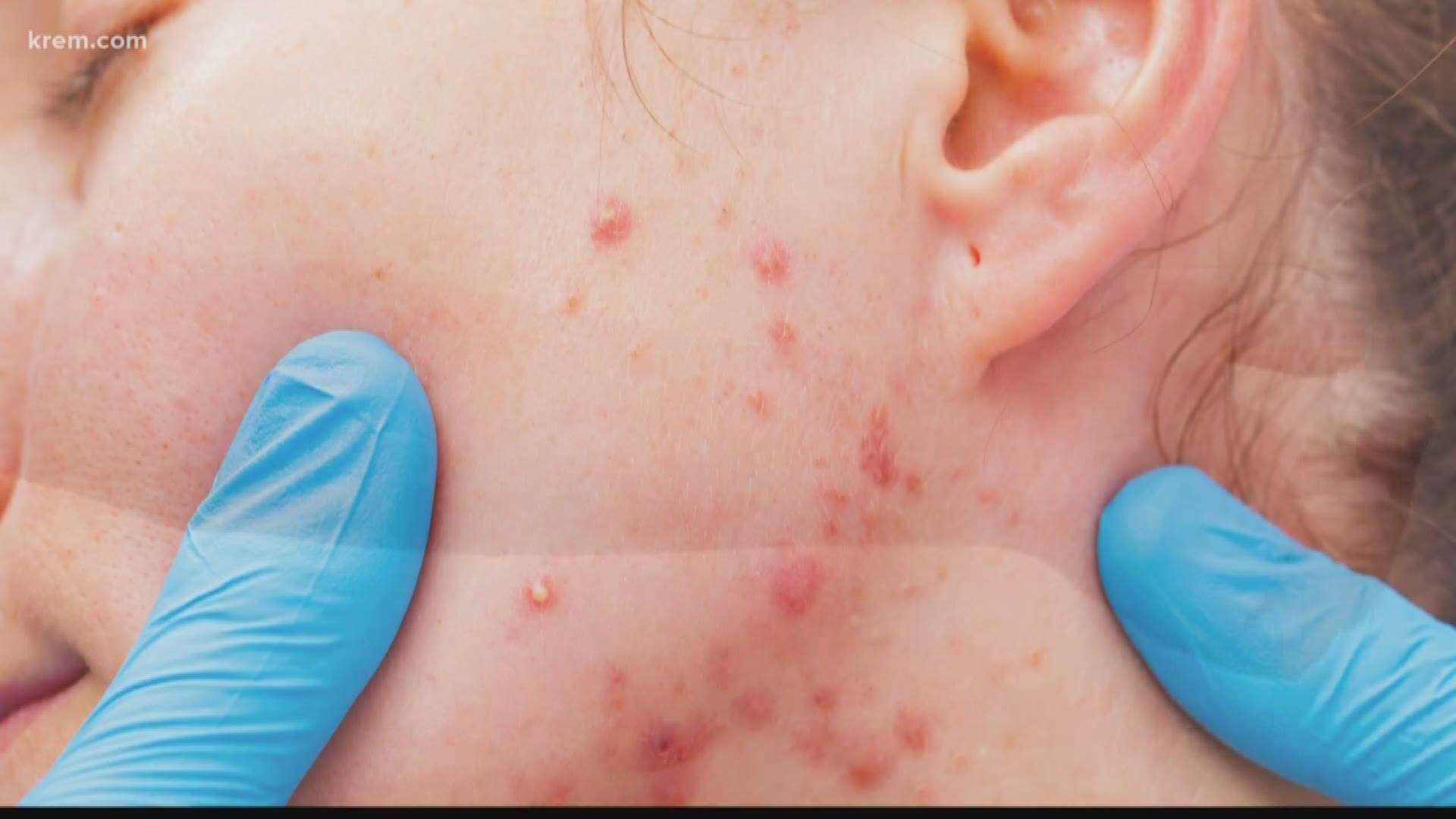SPOKANE, Wash. — A months-long push to fight measles outbreaks is poised to come to a close with a signature from Washington Gov. Jay Inslee.
Following the epidemic in Clark County, which state data says resulted in 72 cases of measles in Washington, lawmakers sought to eliminate certain exemptions to requirements that students be vaccinated.
Right now, students must provide proof that they have received shots for several different diseases, including measles. The measles vaccine, which is combined with those for mumps and rubella, is commonly known as MMR.
There are, however, four current exemptions available to parents who don't want to vaccinate their kids: medical, religious, personal and philosophical. HB 1638 eliminates the last two.
That means students who want to attend public or private school, or a licensed daycare in Washington, will need to provide either proof of vaccination, a note from a doctor saying the shot would not be in the kid's best interest, or a form indicating religious objection to vaccination.
The bill has now passed both the state House and Senate, and Gov. Inslee has already indicated support for the measure.
The bill was sponsored by Rep. Paul Harris (R-Vancouver) following the measles outbreak in his district.
It was the outbreak that motivated Harris to sponsor the legislation, he said.
"I had no intention, actually, when we came into session of running this bill," he added.
It was quickly met with staunch opposition from groups who oppose mandatory vaccines.
Sen. Mike Padden (R-Spokane Valley) sided with that opposition.
"I think it's too bad," he said. "I think parents should have the right to decide if you're going to have something put into their child's body."
But supporters argue that the right of other students, especially those with vulnerable immune systems, to not be exposed to measles takes precedence.
Harris says the courts have agreed.
"The line is crystal clear, and it always weighs on the side of community immunity and community safety," he said.
Some Republicans opposed the measure so fiercely that they proposed dozens of amendments. Padden and Rep. Matt Shea (R-Spokane Valley) were among them. Nearly all of those amendments were shot down.
Harris says he was surprised by how partisan this bill ended up being, with mostly Democrats in support and most fellow Republicans opposed. He says Republicans in other states have frequently supported similar bills.
"This isn't a Republican and Democrat issue," Harris said. "It happened to be in our state for some reason and I honestly can't explain that."
For Padden, a key factor in his decision was the volume and degree of passion of the calls he got from those against the bill.
"There were a lot of parents who opposed this, and strongly, and a lot of them were from my district," he said.
Padden even went as far as to suggest the Clark County outbreak has been overblown in order to justify new restrictions.
"I think that was exaggerated because of the bill, frankly," he said.
Harris sternly contested that idea.
"I had 900 kids [in my area] that missed school for 30 days because of this. 900. It cost my county $700,000," he said. "I don't think it was overplayed at all and this could've gotten much larger."
A different bill proposed in Olympia would have removed the personal and philosophical exemptions for all school-required vaccines. But Harris and his co-sponsors opted to focus on measles.
"Measles are one that is highly contagious," Harris said. "You can leave a room and it will stay active for hours. We just needed to make some progress in this...and I think this was the best way."
He says he's hopeful the changes will help prevent future outbreaks.
"I think it'll make a difference for our kids and for our society as far as safety," said Harris.
In Spokane, the bill could directly affect thousands of students.
According to Spokane Public Schools, 2,550 current students do not have measles immunity, meaning either they are exempt or simply out of compliance, meaning they have not submitted any kind of forms.
Of those students, 1,388 have exemptions of some kind, though the district could not provide data on how many of those exemptions are personal or philosophical.


